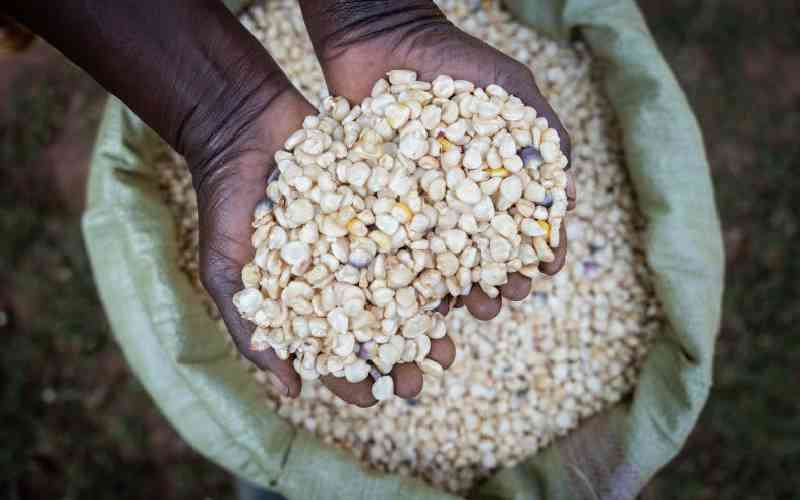Farmers in Kenya do all the hard work while all the money goes to undeserving brokers and middlemen. Theirs is a tragic case of exploitation and loss rather than prosperity.
The challenges farmers encounter when dealing with commodity brokers, paints a picture that would be comical in its absurdity were it not so tragic. A friend, after performing what he describes as “serious math” — using a napkin to tally figures, multiply here, deduct costs there — decided that farming was a profitable venture.
Convinced that his calculations showed promising yields, he planted tomatoes on leased land, and after three months, with his harvest ready, he decided to take his produce to Nairobi’s main market. He had visions of brokers engaging in fist fights as they laid claim to his plump tomatoes. He was deflated by the reception.
On arrival, a broker approached him and asked what it was that he was doing there. “I am here to sell my tomatoes,” he announced pompously. Just in case the broker didn’t get it, he added that his tomatoes were on sale on a “willing buyer, willing seller basis”, and therefore if he wasn’t interested, there were other brokers who would readily take the crop.
Follow The Standard
channel
on WhatsApp
Day one, no other broker asked him about his tomatoes. On day two, some brave soul offered to take the load off him before it got spoiled for an amount that could barely cater for the fuel cost. On day three, the tomatoes were starting to smell funny and city council askaris notified him that he needed to either cart away his stuff or the council would do it for him – at a fee of course. On day four, my friend never showed up at the market. He was done with tomatoes. He claims he doesn’t even eat them anymore because of that painful episode.
This is a common story among small-scale farmers, who often find themselves at the mercy of brokers whose profit motives seem to override empathy. These brokers, intended to serve as middlemen connecting farmers to markets, act more like predators, reaping benefits at the expense of producers. They come in with seemingly genuine interest, only to manipulate the situation or exploit farmers.
I also heard of another farmer who planted 10,000 cabbages. Based on market research and expected demand, he calculated that he could earn between Sh300,000 and Sh500,000 from his harvest. When the cabbages were ready, brokers suggested that they take ten cabbages at Sh30 supposedly to “test” the market. The next day, they returned with disheartening news: the market had crashed, and they could only buy the cabbages at a shilling each! And they were actually doing her a favour, they claimed.
Such depravity has sent many a farmer to an early grave. These stories exemplify a broader issue endemic in the agriculture sector—organised exploitation of farmers by a group of intermediaries whose primary goal is to maximise their own profits at the farmers’ expense. Such brokers thrive on farmers’ desperation and lack of market access, often operating with impunity, with little regulation or oversight.
These brokers should be isolated in remote locations like Manyani until the government intervenes with policies designed to protect the producers. A little stone breaking should be thrown in as part of the daily entertainment, so that they can at least say that one day, they put in a good day’s work.
The agricultural sector needs policies that regulate and oversee activities of such brokers, ensuring fairness and transparency. We can establish a farmers’ market regulatory authority to ensure fixed pricing, fair trade practices, and better market access. Additionally, promoting direct sales channels—such as cooperatives, farmer markets, or digital platforms—can reduce the middlemen’s monopolistic tendencies and empower farmers to retain more proceeds.
The government and stakeholders in the agricultural sector must prioritise development of farmer-friendly policies. Only then can we ensure farmers are not trampled upon by a ruthless middleman class that has long thrived at their expense, and that agriculture can truly flourish for the benefit of all. But best of all, the brokers should stay in Manyani until we seal the loopholes that make them thrive.
-Communications consultant
Follow The Standard
channel
on WhatsApp
By Mutahi Mureithi
